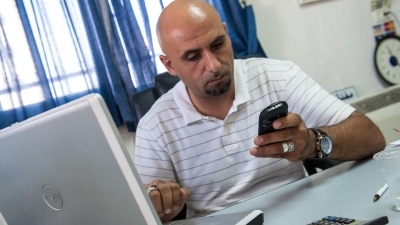For many medium to small companies, winning a government contract can mean steady business and a path to growth.
It should usually be a cause for celebration.
Not so for Shirzad. Celebration quickly turned into anxiety in the face of long delays in payment.
Shirzad works in the Kurdistan Region of Iraq (KRG), where public budgets are stretched thin from coping with the flow of refugees as a result of recent instability.
It has made it hard for the local government to pay its bills on time.
A larger firm might have been able to weather the delays. Shirzad, however, still had to meet his company’s payroll without many other sources of revenue. His company doesn’t have the same kind of nest egg as those of a larger company to cover the salaries.
It’s the kind of situation that can lead to bankruptcy, and one of the reasons why small to medium enterprises (SMEs) often cannot afford to bid for government contracts.
Other obstacles are equally as daunting for smaller firms.
For instance, some Middle East and North Africa (MENA) governments require very large down payments for bidders on public contracts that discourage small companies like Shirzad’s from participating.
Others have instituted very stringent requirements on who is able to bid that make it difficult for small firms to compete. And oftentimes, small businesses are less aware of where to find out about the opportunities in the first place.
So even when there are formal laws in place to support SME bids, the firms still find themselves at a distinct disadvantage.
Some of the challenges, however, lie with the small businesses themselves.
Lacking the prior experience in doing business with the government like the large and well-connected companies, SMEs often do not know how to prepare a proposal that could win, or how to set a competitive price. Many do not know where to find adequate information about the laws and procedures that govern the process. And in other cases, small businesses may not be aware of their own rights, as well as their integrity obligations, when it comes to doing business with the government.

